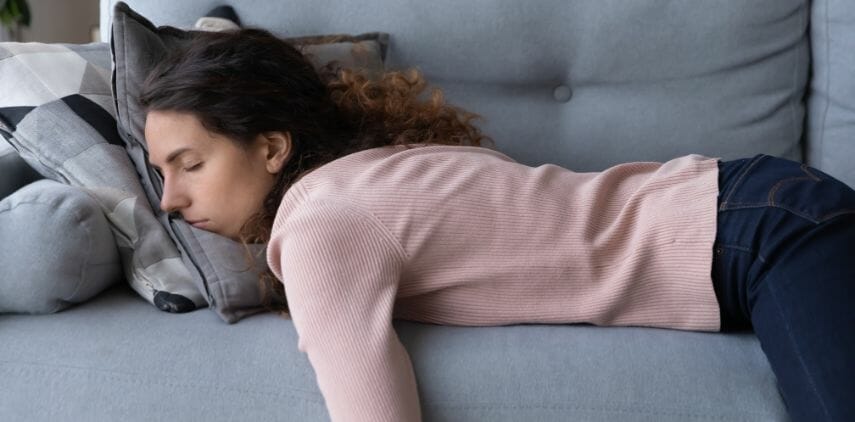Vitamin D is a nutrient found in food and supplements, and it’s also produced when your skin is exposed to sunlight. Vitamin D is important for many reasons, and it helps the body absorb calcium and phosphorus, two minerals essential for bone health.
You can acquire Vitamin D from food sources, such as eggs, fatty fish, fortified milk, and cereals. You can also get it from supplements or by spending time in the sun.
Most people get enough Vitamin D from a combination of diet and sun exposure. However, some people may be at risk for Vitamin D deficiency. This includes people who don’t get enough sun exposure, and people with certain medical conditions that make it challenging to absorb Vitamin D.
If you’re concerned about your Vitamin D levels, talk to your doctor. They can order a blood test to check your levels and recommend treatment if necessary.
Here are eight signs of Vitamin D deficiency.
1. You Have Bone or Muscle Pain
Vitamin D helps the body absorb calcium and phosphorus, two minerals essential for bone health. If you don’t have enough Vitamin D, your body can’t absorb these minerals properly, which can lead to bone and muscle pain.
2. You’re Tired All the Time
Vitamin D plays a role in regulating the sleep-wake cycle. If you’re not getting enough Vitamin D, you may always feel tired.
3. You Always Get Sick
Vitamin D helps the body fight off infection. If you’re not getting enough Vitamin D, you may be more susceptible to colds and other diseases.
4. You Have Depression
Vitamin D deficiency has been linked to depression. If you’re feeling down all the time, it could be a sign that you’re not getting enough Vitamin D.
5. You Have Difficulty Concentrating
Vitamin D plays a role in brain function. If you’re not getting enough Vitamin D, you may have difficulty concentrating.
6. You Have Dry Skin
Vitamin D helps the body maintain healthy skin. If you’re not getting enough Vitamin D, you may have dry, scaly skin.
7. You Have Hair Loss
Vitamin D helps the body produce keratin, a protein essential for hair health. If you’re not getting enough Vitamin D, you may experience hair loss.
8. You Have Pain in Your Bones or Muscles
If you have bone or muscle pain, it could be a sign of Vitamin D deficiency. This is because Vitamin D helps the body absorb calcium and phosphorus, two minerals that are essential for bone health.
If you’re concerned about your Vitamin D levels, talk to your doctor. They can order a blood test to check your levels and recommend treatment if necessary.
Conclusion
As you can see, there are several signs that you may be deficient in Vitamin D. If you’re concerned about your Vitamin D levels, talk to your doctor. They can order a blood test to check your levels and recommend treatment if necessary.




